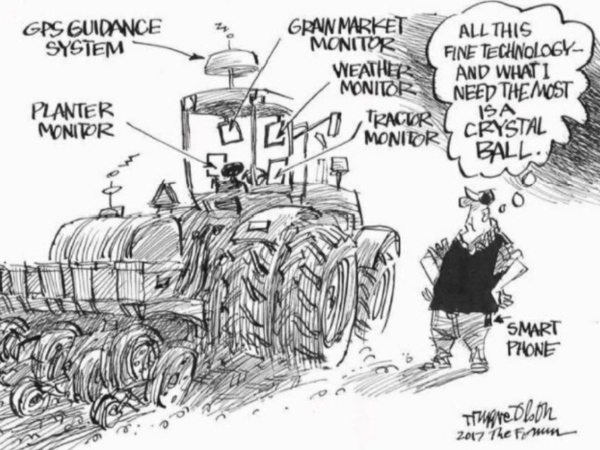Italian farms may benefit a lot from digitization...
If they do not transform themselves in offices, that is.

A recent analysis, commented here, uncovered great progresses in the adoption of digital technologies in Italian stables.
Ten years ago, only 4% of Italian livestock businesses had started some digitization process. Today, nearly 53% of them has a broadband connection.
This development opens the door to great opportunities, from animal welfare to better decision-making and greater environmental sustainability. Only where broadband is actually available, of course, that is 63% of farms in Northern Italy, but only 34% in the South and major islands.
For all the other farms, instead, the benefits of artificial intelligence or the Internet of Things remain dreams, says that comment.
What is needed is BROADBAND. But is it?
Personally, I am more than a bit skeptical that merely bringing broadband to the farms that still lack it would drop them into some digital farming paradise. One big reason for my skepticism is in the post itself, where it says that another critical obstacle to happy digitization is
“the absence of interoperability and standard formats among the several software programs and services currently available for Italian farms”
All too often, that is, Italian farmers who went digital are forced to transfer data from one program to the others by typing them again, by hand.
This and other obstacles to better farming via digitization should be solved, concludes the post, by greatly increasing the availability of broadband and, at the same time, by pushing the adoption of cloud computing services, still barely used with the only exception of email.
Italian farms have nothing special
From that post, it seems that Italian farms, or farms everywhere, have nothing special. Nothing special at all.
The “interoperability” problems are the same of every organization that goes digital, in every sector of society: even where broadband is available, the introduction of computers produces so much data that, unless they can always be easily interpreted and transmitted from application to application automatically, things get worse, not better.
As a side note, please appreciate how the solution proposed is the same for any other sector: dump loads of (possibly public) money on big infrastructures controlled by a few huge players, hand them your data, and everything will be good.
Italian farms are very special too
Back to interoperability, its current absence seems to have lead Italian farms to a weird paradox. According to that post, one hour spent on actually tending livestock would be less profitable than one hour spent analysing farming data.
I have no elements to think that that assertion is false. I am just worried that it is true. If it is, it means that the more farms digitize themselves the less remains to differentiate every farm, or farmers community, from all the others. That is, the more farms digitize, the less probabilities they have to survive as independent entities, tied to their local community.
Who writes this, why, and how to help
I am Marco Fioretti, tech writer and aspiring polymath doing human-digital research and popularization.
I do it because YOUR civil rights and the quality of YOUR life depend every year more on how software is used AROUND you.
To this end, I have already shared more than a million words on this blog, without any paywall or user tracking, and am sharing the next million through a newsletter, also without any paywall.
The more direct support I get, the more I can continue to inform for free parents, teachers, decision makers, and everybody else who should know more stuff like this. You can support me with paid subscriptions to my newsletter, donations via PayPal (mfioretti@nexaima.net) or LiberaPay, or in any of the other ways listed here.THANKS for your support!